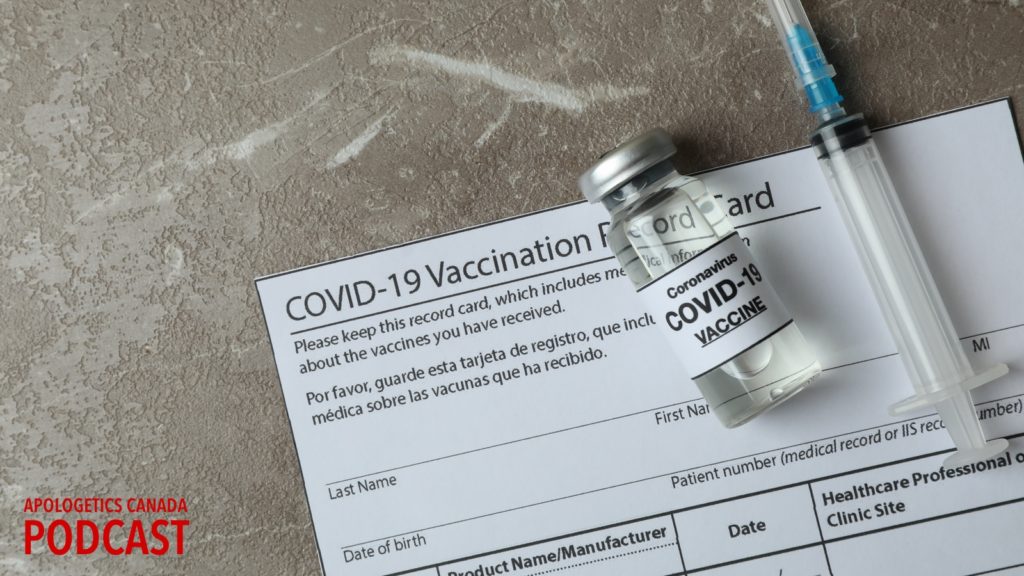COVID-19 has been very revealing. One of the many things it has highlighted is our seeming inability to have a courteous dialogue on issues we disagree with. Even as many are seeing the light at the end of the COVID tunnel with vaccine rollouts, a new point of contention is dividing people again. Will we get vaccinated or not? Do vaccine passports infringe on our freedom? Are we living in fear? Today, Andy, Steve, and Troy take the time to discuss this issue on the AC Podcast.


I was left a bit wanting (maybe even concerned), after this episode. I thought I would weigh in with a few points.
While I agree with the idea of not being fear driven, that seems to be the primary driver of decision making across the spectrum (ie. not just being afraid of the vaccines). Legitimate fears should be weighed properly, with the problem being unfounded fears.
The true antivaxxers, seem afraid of everything from embedded chips to DNA-alteration. But, the vaccine-hesitant have fears as well, stemming from current incidents of issues arising from vaccination, as well as the alarm being sounded by well-credentialed experts in the field.
Those promoting vaccination also seem driven by a number of fears. They might be afraid of being labeled an antivaxxer. They might be unduly afraid of the health risk of Covid-19. They might be afraid of not regaining freedoms they have long enjoyed, or even inability to participate in events like concerts or theatre.
However my main concern, was the Christian application of serving society or one-another as applied to THESE vaccines. I generally agree with this principal, and Apologetics Canada is hardly the only ministry making the case.
The problem I see (in this case), is that I’m not sure these gene therapies (a.k.a. vaccinations) will have the intended effect we might traditionally presume, either positively or negatively. Therefore the principal might not be so clear in application.
In the positive sense, vaccination historically made sense in a social context. It stops the spread and helps protect the vulnerable (including those who couldn’t risk taking the vaccine). Covid-19 vaccines, however, are symptom-reduction treatments. They don’t keep one from contracting Covid-19, nor do they keep one from spreading it. It could actually be argued, that having vaccinated people in an environment the vulnerable might feel more safe entering, places them at greater risk.
The other problem, is herd immunity. I’m not sure we know yet what the impact will ultimately be on herd immunity, but here are a couple points to consider.
When comparing markers of immune response between people who’ve had Covid-19 to vaccinated people, the natural immunity is superior (both in strength and what looks to be lasting potential). Also, because we are targeting a specific protein, the recognition of similar / variant viruses won’t be as good as a natural immune system response.
The real question, in this regard, comes down to a risk/reward calculation. Can we risk gaining natural immunity? It would seem, going by the data, that for most who aren’t over a certain age and/or have certain health issues, statistically, we could.
But, then come the negatives.
We might be actually circumventing a proper immune response. This might cause more immediate issues, in terms of a future Covid-19 wave if we don’t get the timing right, or keep everyone up-to-date with boosters. But, it also could make society far more susceptible to a variant or similar future virus. Sorry to be morbid, but this could lead to many more deaths in the future than we witnessed from Covid-19.
We also do not know the side-effect implications of forcing our bodies to produce the spike-proteins. There is data emerging that a number of the ‘long-haul’ symptoms associated with Covid-19, are actually cased by the spike proteins. This is aside from a whole host of other concerns from autoimmune reactions, blood conditions, etc
In other words, we might be causing the whole of society great long-term health issues (including death) in our haste to solve the immediate problem. It is about much more than being unwilling to accept some personal risk for the benefit of the the whole.
Steve, these are great points you are making! Thank you for sharing your thoughts.
Andy